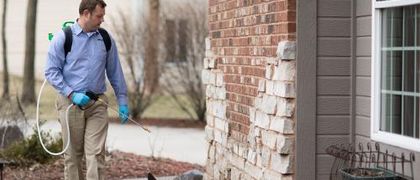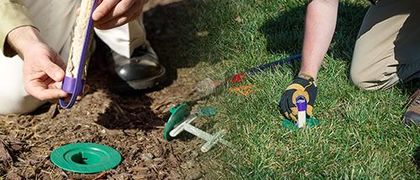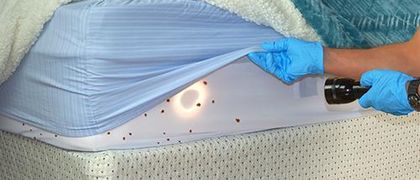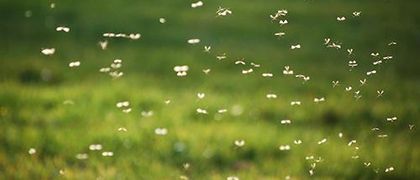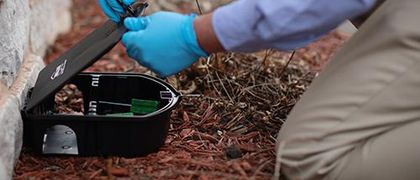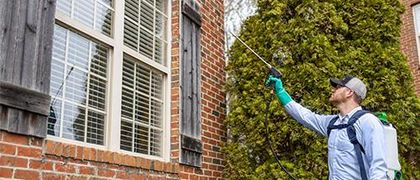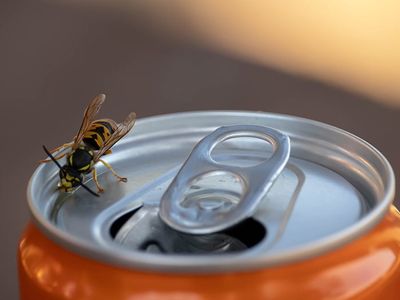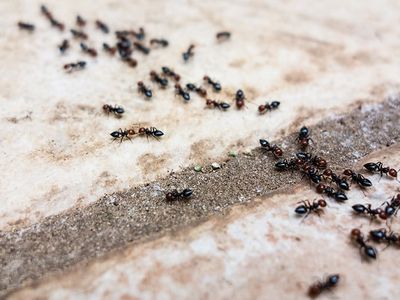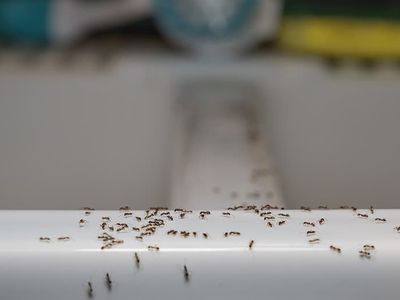What do hornets look like?
- Size: Size varies by species but up to 1.5 inch
- Color: Brown with yellow abdominal stripes and pale face (European hornets) and black with a white pattern on most of the face (bald-faced hornets)
- Body Structure: Long wasp-like bodies, six legs, pair of wings, antennae
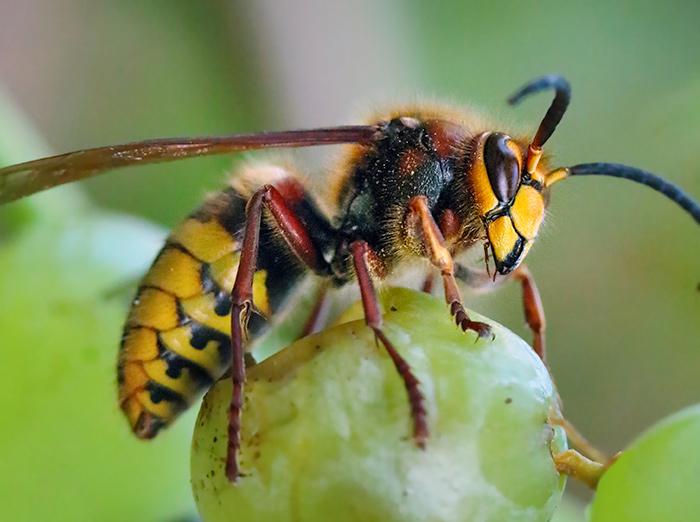
Characteristics of hornets
Hornets are social insects, living in colonies. Queens in the colony lay eggs in the spring, building a paper comb around each individual egg. Eventually these larvae hatch into worker hornets, whose purpose is to find food, build the nest, and protect newly-hatched young. A nest may contain upwards of 500-700 workers at any given time. Males in the nest will fertilize new female queens, who then leave the nest that fall to begin new colonies.
When are hornets most active?
Where do hornets build nests?
Hornet nests are often found hanging from tree limbs, utility poles, shrubs, outbuildings, and eaves/rafters of buildings as well as other parts of houses.
What do hornets eat?
Adult hornets primarily feed on nectar from flowers, but they collect insects and other arthropods to chew up and feed to their growing larvae.
Are hornets dangerous?
Hornets are extremely aggressive and will sting people and animals that get too close to their nests. When hornets sting, the venom they inject at the sting site may cause stinging, itching, and swelling for about 24 hours. As is the case with other types of stinging insects, hornet stings may produce an allergic and/or life-threatening reaction. If you're stung by a hornet and are experiencing trouble breathing or other symptoms, seek medical care immediately.
Why do I have a hornet infestation?
Baldfaced hornets are attracted to food and water sources. If your property has water, flowering plants, gardens, insects, and even uncovered trash, there's a very good chance hornets will show up and start building nests.
How do I get rid of hornets?
If you've noticed stinging hornets on your property and are worried that someone might be stung, you should contact an exterminator to positively identify the species and treat accordingly.
At Miller Pest & Termite, we offer stinging insect control services for hornets, carpenter bees, and yellow jackets, as well as other stinging insects. Reach out today to find out how our local pest control team can help you knock out wasps!
How can I prevent a hornet problem?
To prevent a hornet problem on your property, our pest control specialists recommend the following pest prevention tips:
- Seal all openings on the exterior of the house, even tiny cracks
- Keep food covered when dining outdoors
- Clean and cover your grill after each use
- Do not feed pets outside
- Use exterior trash cans that have tight-fitting lids
- Change exterior lights to yellow bulbs
- Pick up fruit that has fallen off trees right away


Get Help Now!





